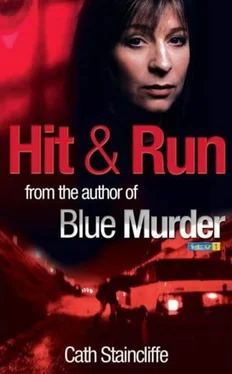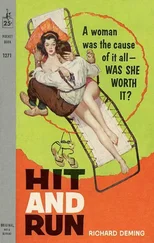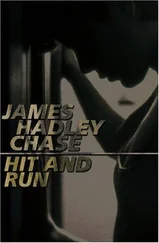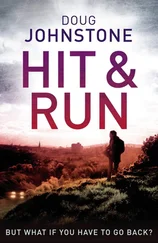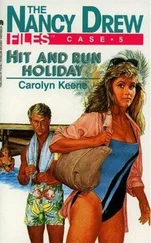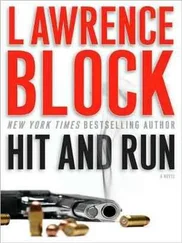
Cath Staincliffe
Hit and Run
The second book in the Janine Lewis series, 2005
Thanks to everyone involved with Blue Murder at Granada and specially to Anna Davies – a brilliant script editor.
To my brothers, Paul (I got the hint – you read the book) and David.
Marta was straightening Rosa’s hair. Rosa watched in the mirror, occasionally pulling faces to tease her friend. She’d already helped Marta, who wanted her blonde hair crimping in tiny zigzags; now it was Rosa’s turn. Marta took another length of dark wavy hair and clamped it between ceramic plates. Rosa winced; she could feel the heat on her scalp.
‘Steady on,’ she spoke to Marta in the mirror. They always spoke Polish when they were alone together. ‘I want it straight not barbecued.’
‘Stop moaning. You have to suffer for your looks.’ Marta pulled the tongs the length of the hair then released it. A couple more swipes and she declared it done. Rosa smiled, admiring herself. She hoped it wouldn’t rain or she’d go all frizzy again.
‘Going in early?’ Marta unplugged the device.
‘Bit more cash.’ Rosa rubbed her thumb and fingers together.
‘See you later then.’
‘Sure.’
When Marta left, Rosa let the façade drop. She had butterflies in her stomach already and an unpleasant tightness in her chest. As a child she’d loved to play hide and seek, the thrill of hiding and running, the exquisite shock of being found. But this was no game, she knew that. The chance that it would all work out still lingered but she knew it was a dim hope. Whatever happened she couldn’t afford to be caught.
When she left the house, anyone watching would have seen a lovely young woman walking swiftly. If they had looked a little longer they would have noticed the determination in her face and the set of her shoulders, perhaps a trace of fear in her gaze.
Two girls on bikes found the body, not a dog-walker as is often the case. Barely dawn, the pair had stuck to their pact to cycle to school. Their parents had allowed them to take the scenic route along the riverside with admonitions that they must stay together, take a change of shoes, not do anything silly. After all, it was argued, that route was safer than braving the heavy rush hour traffic chugging into Manchester or out to the motorways. And youngsters needed more exercise these days.
The girls were skirting the path beneath the motorway flyover when one of them had glimpsed the log-shaped bundle stuck on the weir, buffeted by other debris that clung on the edge, water streaming around it.
She braked and stood astride her cycle, thinking for a moment it was a manikin, someone’s idea of a joke to put the thing there, like those arms sticking out of letter boxes. Calling to alert her friend, she continued to stare at it; taking in the ribbons of dark hair in the water, the curve of an arm, something bright around the wrist, a plastic bottle perhaps, shreds of black plastic obscuring the rest. It was the colour of that arm, a greyish white, like mould on meat, which finally made her realise what she was looking at. That filled her throat with fear and sent shock stinging into her fingers.
Not late, not yet, just nearly. Janine Lewis steered seven-year-old Tom out of the house and towards the car. Day two back at work and it still felt like a Herculean labour to get the kids sorted and herself to the police station on time. It was bound to get easier, wasn’t it? Please? Somebody?
At least baby Charlotte had behaved well for Connie, the nanny, yesterday – not even crying when Janine, her stomach knotted with that back-to-school feeling, had left. The older two, Eleanor and Michael, more or less got themselves ready and out. Eleanor, still neat in her new High School uniform, desperately careful to have all the correct books for each day. Still getting used to the transition. And Michael off to sixth-form college, enjoying the freedom of wearing his own clothes, a flexible timetable and – if the amount of grooming he was doing was any indication – the attention of girls. Michael had reacted badly to his parents’ separation but he seemed to be over the worst now; he’d settled down to his coursework, stopped seeing the other lads who’d been such a bad influence.
Connie came out on the doorstep holding Charlotte. The nanny wore her long hair in a single plait which helped emphasise her Hong Kong origins.
Janine walked back and kissed her baby, nuzzled the fine hair on her head. Charlotte made a little sound, an appreciative murmur.
‘Bye-bye, my best girl,’ Janine told her. Turning to Connie she added, ‘Ring me if there are any problems. I should be back by six unless anything new comes in.’
Her first day back had been deskbound: forms and reports to absorb, catching up on the new initiatives that the police force had introduced since she’d gone on maternity leave, updating her ID pass and parking arrangements and reviewing security procedures in the building. She’d needed that space; her head still felt fuzzy from lack of sleep, her mind cluttered with all the tasks associated with being a mother of four, one of whom was still an infant.
Now, climbing into the car, she looked forward to the delicious luxury of being able to make coffee in her office and drink it while still hot, the novelty of not being interrupted by a cry. Compared to the demands of being at home, work felt like a doddle. After six months up to her ears in nappies she had probably developed cabin fever.
Lunchbox! She clambered out again, grabbed Tom’s lunchbox from the top of the car and put it on the passenger seat. Tom was strapped in, listening to his personal stereo, his head nodding to the music. She gave him the thumbs up, got in and started the car. When she pulled out into the main road the traffic was busy and slow.
She had dreaded and anticipated her return to work in equal measure. Being part-time would have been the ideal but it simply wasn’t an option if she wanted to progress in the force. And she did. She relished the challenges of leading major enquiries, of working with a team. That was the real heart of the job: the detecting, the hard task of uncovering the real story, getting to the truth behind the tragedy and ultimately finding justice for the dead and their loved ones.
It was a bright day, cool but not cold enough to be frosty, with a fresh breeze. The trees had shed almost all their leaves now; an odd one clung on here and there, flapping against the blue sky. A flock of pigeons wheeled overhead as Janine made slow progress through Didsbury village. The street was lined with shops, restaurants and estate agents, the road edged with parked cars. The property market was still booming and every spare speck of land was being developed into luxury apartments for young professionals.
Janine’s mobile rang and she pressed the hands-free answer button.
‘Janine?’
‘Richard?’
Her colleague, Detective Inspector Mayne to give him his full title. She gleaned a sense of urgency in his tone. She glanced in the rear-view mirror checking that Tom was still tuned in to his music, anxious he shouldn’t overhear anything that might be inappropriate.
‘Suspicious death,’ he said bluntly. ‘Body in the Mersey, Northenden. They’re pulling her out now.’
Janine swallowed, braced herself as she felt the spike of adrenalin kick in. ‘I’m on my way,’ she told him.
Outside the school, Tom pulled away from her to dash through the gates. Janine called him back, holding up his lunchbox. He turned and ran, his arms outstretched, plane-fashion. Grabbing the box, he wheeled away but not before Janine had a chance to plant a kiss on his head.
Читать дальше
